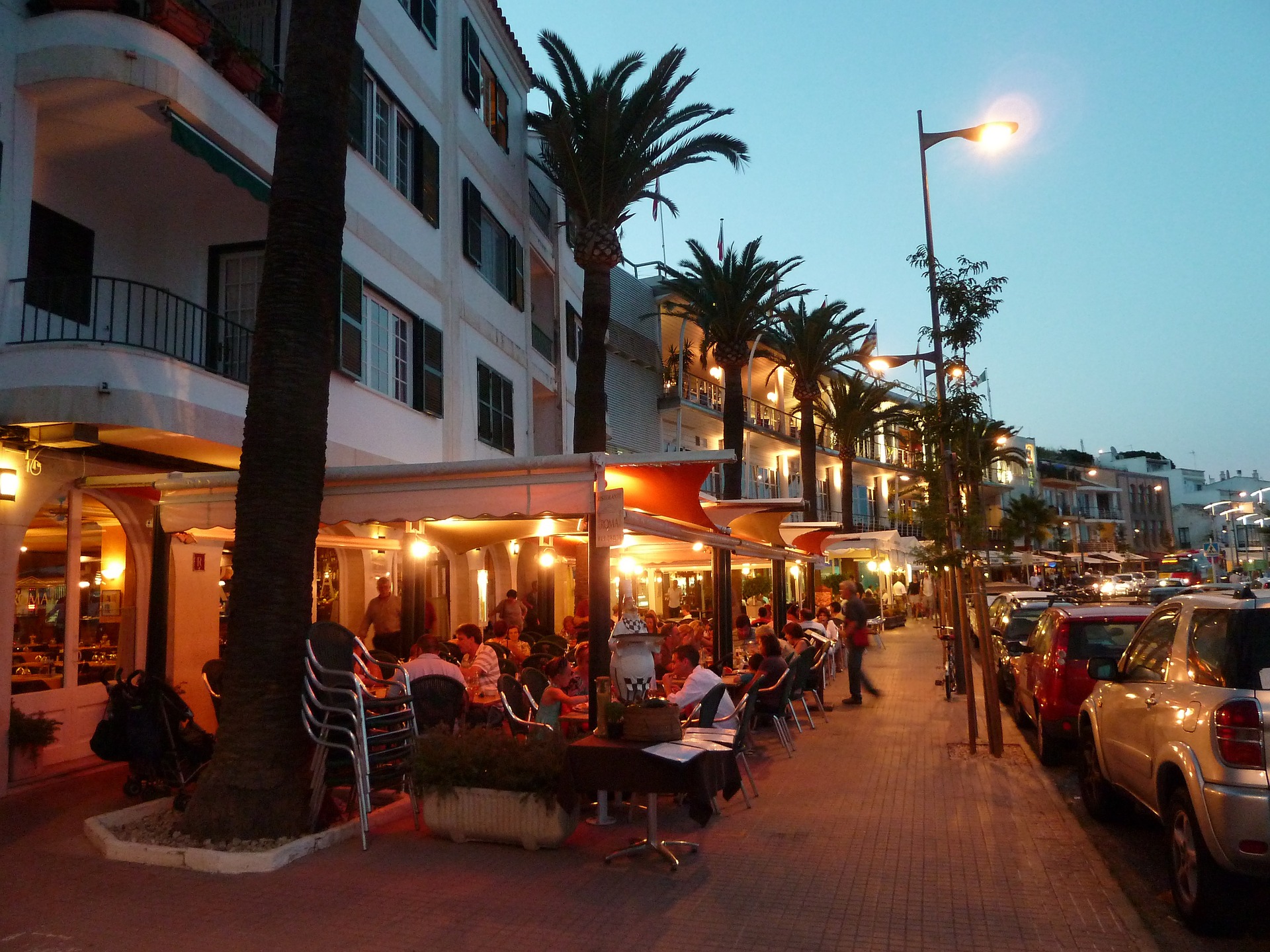Croatia's Coronavirus Update: 138 New Cases, 25 Deaths
ZAGREB, 5 April, 2021 - Over the past 24 hours, Croatia has registered 138 new cases of the coronavirus infection and 25 people have died, the national COVID-19 crisis management team said on Monday.
A total of 1,154 people have been tested in the last 24 hours.
The number of active cases in Croatia today stands at 11,854, including 1,616 COVID patients in hospitals, 156 of whom are on ventilators.
Since 25 February 2020, when Croatia registered its first case, a total of 280,164 people have contracted the novel coronavirus.
There have been 262,227 recoveries, including 1,691 over the past 24 hours, and the death toll is 6,083.
To date, 1,583,654 people have been tested, 1,154 of whom in the last 24 hours, and there are currently 29,951 people in self-isolation.
As of 4 April, 524,371 doses of vaccine have been used, and 426,037 people have been vaccinated.
A total of 326,055 people have received the first dose, while 98,334 have been inoculated with both doses. For 1,648 people, there is no data on which dose they have received.
For more about Covid-19 in Croatia, follow TC's dedicated page.
Croatia Confirms 300 New Coronavirus Cases, 18 Deaths
ZAGREB, 29 March, 2021 - A total of 300 new coronavirus cases and 18 COVID-19-related deaths have been registered in Croatia in the last 24 hours, the national coronavirus response team said on Monday.
The number of active cases currently stands at 9,290. Of them, 1,247 people are receiving hospital treatment, including 126 who are placed on ventilators.
Since 25 February 2020, when the first case was confirmed in Croatia, 267,522 persons have been infected with the novel virus, of whom 5,911 have died and 252,321 have recovered, including 1,084 in the last 24 hours.
Currently, 29,191 people are in self-isolation. A total of 1,530,168 people have been tested to date, including 2,848 in the last 24 hours.
To date, 348,648 people have been vaccinated against COVID-19, including 266,900 who have received one dose of vaccine and 81,748 who have received two. A total of 430,396 doses have been administered.
For current coronavirus information specific to Croatia, including border and travel rules, as well as testing centres across the country, bookmark this page.
Croatia Registers 44% Increase in Weekly Number of Coronavirus Cases
ZAGREB, 22 March, 2021 - The number of new coronavirus cases in Croatia has increased by 44% in the past week compared with the previous week, and the share of positive people among those tested was 14.3%, the national COVID-19 response team said at a press conference on Monday.
"In the week between 16 and 22 March, we had a total of 6,616 new cases, while between 9 and 15 March there were 4,566 new infections. The number for this week is 44% higher than for the previous week," the director of the Croatian Public Health Institute, Krunoslav Capak, said.
The current 14-day incidence rate is 273.5 per 100,000 people, the lowest being recorded in Virovitica-Podravina County and the highest in Primorje-Gorski Kotar County, where it is 759.9.
Croatia has the eighth lowest incidence rate in the European Union, after Lithuania, Germany, Denmark, Finland, Ireland, Spain and Portugal.
In the last 24 hours, Croatia recorded 150 new coronavirus cases and 13 related deaths, including the death of a 60-year-old person who did not have any underlying medical conditions. All the other people who died had comorbidities and their average age was 77.6 years.
Croatia Reports 150 New Coronavirus Cases, 13 Deaths
ZAGREB, 22 March, 2021 - A total of 150 new coronavirus cases and 13 related deaths have been registered in Croatia in the last 24 hours, the national COVID-19 response team said on Monday.
The number of active cases currently stands at 6,280, of whom 1,033 infected people are receiving hospital treatment, including 95 placed on ventilators.
Since 25 February 2020, when the first cases was confirmed in the country, 257,789 infected people have been registered, of whom 5,786 have died and 245,723 have recovered, including 779 in the last 24 hours.
Currently, 21,879 people are in self-isolation. To date, 1,477,537 people have been tested for the novel virus, including 2,521 in the last 24 hours.
Croatia Sees 28.8% Increase in Weekly Number of New Coronavirus Cases
ZAGREB, 15 March, 2021 - The number of new coronavirus cases in Croatia has increased by 28.8% on a weekly level as steps are being taken to ensure a fairer distribution of vaccines at EU level, the national coronavirus response team told a press conference on Monday.
"In the past week have had 4,566 new cases, with the weekly number of cases increasing by 28.8%. The incidence rate is 198.4, the lowest being in Istria and the highest in the Dubrovnik area," Croatian Public Health Institute (HZJZ) director Krunoslav Capak said.
Increasing presence of the British variant
The results of sequencing of 355 samples have shown that the British variant of the coronavirus was found in 204 samples, the Czech variant was detected in 45 samples and the South African variant in four. Two people infected with the South African variant were travelling from Mexico to Croatia via Turkey, and two persons have been infected in Croatia.
As for vaccination against COVID-19, Capak said that initial talks had been conducted with a Chinese pharmaceutical company and that more information about the Chinese vaccine and results of clinical studies would be made available in subsequent stages of the talks.
Capak said that Pfizer was expected to deliver 23,000 doses of its vaccine weekly this month, while AstraZenica was to have delivered a million doses in the first quarter of the year, but failed to do so.
"While other countries ordered the maximum number of doses from manufacturers, we did not and that's why we have a shortfall. We are taking steps to ensure a fairer distribution or a correction for those who have been short-changed by AstraZeneca," he said.
As for vaccination with the AstraZeneca vaccine, the HZJZ estimates that fewer than 30% of people in Croatia have refused this vaccine, contrary to media reports, Capak said.
EU legislation must be complied with in vaccine procurement
Health Minister Vili Beroš said that Croatia did not want to close its door to alternative ways of vaccine procurement, including the Russian-made Sputnik V vaccine, but stressed that EU legislation must be complied with.
"If EMA (the European Medicines Agency) refuses the Russian vaccine, I doubt that anyone, even HALMED (the Croatian Agency for Medicines and Medicinal Products), will decide otherwise. ... We are awaiting EMA's reply to the letter from our prime minister," Beroš said.
Speaking of problems with the AstraZeneca vaccine, Beroš cited a World Health Organisation report saying that over 280 million people across the globe have been administered this vaccine and that there are no indicators suggesting that this vaccine is responsible for severe disorders or deaths.
As for thromboembolic incidents, Beroš said that nine patients with thrombosis or pulmonary embolism are hospitalised in Croatia daily and many of them die. "There can be a connection between such cases and vaccination, but it is important that medical professionals set clear criteria in ruling out or confirming the connection between vaccination and an unwanted event."
Increased vaccine deliveries announced
The head of the national coronavirus response team, Interior Minister Davor Božinović, said that all EU member states were dissatisfied with the pace of vaccine delivery, adding that optimistic news was coming from Brussels about resumption of AstraZeneca vaccine deliveries. In addition, Pfizer has increased production of its vaccine, which will improve countries' vaccine supplies, he added.
Božinović dismissed speculation that Croatia would have been better off had it entered into direct negotiations with vaccine manufacturers, bypassing the European Commission. "All member states have authorised the Commission to negotiate, and I think that's the only right way."
He said he was confident that the Commission would emerge from this difficult situation with new experience because the health policy was not part of the EU's integrated policy. It has turned out that only with a common, solidarity-based approach can the EU deal with the pandemic, he noted.
Božinović said that the EU was gathering information about the capacity of each member state for vaccine production, stressing the need for investment in public healthcare, science and research.
"The manufacture and delivery of vaccines should be stepped up, and the world should not be taken by surprise by an outbreak of a new pandemic in the future," Božinović said.
Substantial decline in mortality among elderly people after vaccination
The director of Zagreb's Hospital for Infectious Diseases, Alemka Markotić, underlined the importance of vaccination for elderly people, saying that a substantial decline in COVID-19-related deaths among elderly people after vaccination had been observed across the EU.
Croatia Reports 94 New Coronavirus Cases, 19 Deaths Linked to COVID
ZAGREB, 8 March, 2021 - In the last 24 hours, of 2,178 coronvairus tests performed in Croatia, 4.3%, that is 94, have returned positive, the country's COVID-19 crisis management team told a news conference in Zagreb on Monday.
Currently, there are 805 COVID patients in hospitals, including 74 placed on respirators.
In the last 24 hours, the health authorities have reported 19 new fatalities linked to COVID, and the death toll stands now at 5,609.
Croatia Reports 431 New Coronavirus Cases, 13 Deaths
ZAGREB, 20 February, 2021 - Croatia has recorded 431 new coronavirus cases and 13 related deaths in the last 24 hours, the national coronavirus response team reported on Saturday morning.
The number of active cases currently stands at 2,421. Among them are 782 infected people receiving hospital treatment, 78 of whom are on ventilators.
A total of 12,001 people are currently in self-isolation.
So far, a total of 1,298,994 people have been tested, including 5,579 in the last 24 hours.
Since 25 February 2020, when the first coronavirus case was confirmed in Croatia, 239,685 people have contracted the novel virus, of whom 5,420 have died.
A total of 231,844 have recovered, including 310 in the last 24 hours.
Index: Cafe Terraces Open In Two Weeks If Numbers Stay Low
February 17, 2021 – Indoor sports return and cafe terraces open on Monday 1st March if infection numbers remain low, learns Croatian media outlet Index.
By the time spring arrives, Croatian coffee lovers should be back enjoying their drinks outside their favourite cafe bar. Cafe terraces open on Monday 1st March 2021 if Coronavirus infection numbers remain low and stay on their current trajectory, according to Croatia media outlet Index.
Indoor sports will also return on the same date, with the same stipulation that infection numbers remain low. Having cafe terraces open again cannot come too soon for frustrated business owners. At the moment, they are only permitted to serve coffee to go. According to Index, from on Monday 1st March 2021, cafe terraces open and people will no longer need to congregate on the street outside, in parks or on benches to enjoy their drinks.
“Measures should be further relaxed throughout Croatia as of March 1, including the much-anticipated opening of cafe terraces,” says the portal. Cafe terraces open and other relaxed measures depend on the prerequisite of figures remaining at the level they are at now. “The share of newly infected in the number tested in recent days is below five percent,” Index adds.
Headquarters and the government had already announced that the next round of concessions could be expected in early March. Cafe terraces open in Croatia from March 1st 2021, if Coronavirus numbers remain low, say media outlet Index
Cafe terraces open in Croatia from March 1st 2021, if Coronavirus numbers remain low, say media outlet Index
Croatian cafe terraces open, the interior of cafes and restaurants remain closed
“As we find out, the terraces of cafes and restaurants will definitely open on March 1,” wrote Index. “However, according to information from a source close to the Headquarters, the closed (interior) parts of cafes and restaurants will not be opened. (This) is realistically expected in April at the earliest.”
“Once cafe terraces open, guests will most likely not be able to enter the interiors of cafes and restaurants, except perhaps for the use of toilets, to prevent indoor parts of cafes and restaurants from being used and guests being served there. Closed spaces are still considered by headquarters (to be) an extremely high risk when it comes to the spread of coronavirus.”
Further relaxation of Coronavirus measures: Indoor sports to return
According to Index, although the first information received said that from March 1, only indoor sports for children would be opened, the portal has discovered that instead all indoor sports should be opened, with prescribed epidemiological measures. They remind that, according to current measures, only gyms, swimming pools and contactless individual ball sports are allowed.
Public gatherings / marketplaces / fairs
“There should be concessions when it comes to fairs, but it is not yet completely clear under what conditions,” says the portal. Like supermarkets, open-air and indoor markets are currently permitted to operate. The newly relaxed measures will pertain to similar, but more irregular events at which arts & crafts, books and other goods are on display for sale. The portal say that the vending and consumption of food – which is traditional at such events – will likely not be permitted for now.
“The headquarters is inclined to open fairs where products are sold or exhibited, but the consumption of food and drinks might be limited to prevent excessive gatherings and socializing,” they say.
Relaxation of Coronavirus measures pertaining to private gatherings
“The allowed number of people at various gatherings should not change significantly, only minor corrections are possible,” claims the portal, adding that the current ban on the gathering of people from more than two households may instead be downgraded to a recommendation. The portal reminds that this measure has not been strictly enforced in any way before.
"To give way on March 1, the numbers have to stay at about the level they are now. But the pressure is great - no one wants to keep something closed that should not be kept closed. Most of it is already open, so there remains a narrow circle of what can still be given,” a source close to the Headquarters is quoted as telling Index.
Friction between regional and national authorities over easing of Covid-19 measures
Even if cafe terrace open on March 1st, Index concludes their article by reminding that a disparity between regional and national authorities is still causing some friction. The friction between two north-westerly regions of the country and national headquarters is specifically addressed.
“The Headquarters believes that the announcement of the Istrian Headquarters that they will open the terraces of cafes and restaurants on March 1 was very incorrect. They (national headquarters) say that this opening is planned at the level of the whole of Croatia anyway.”
“However, the decision of the Primorje-Gorski Kotar headquarters, which postponed the opening of bookmakers and casinos in that county, is perhaps even more critically commented on. The government states that the opening of bookmakers (betting shops) and casinos is a purely financial decision and ironically comments that if the Primorje-Gorski Kotar County wants to leave these facilities closed, they should (themselves) cover the costs that will be incurred,” says the Index article.
Index claims that these moves from Istria and Rijeka (Primorje-Gorski Kotar) are regarded in the National Headquarters and the government as politicking and that they are connected with the upcoming local elections.
For the latest travel info, bookmark our main travel info article, which is updated daily.
Read the Croatian Travel Update in your language - now available in 24 languages
Croatia Logs 379 New Coronavirus Cases, 17 Dead
ZAGREB, 13 February, 2021 - In the past 24 hours 379 new coronavirus cases and 17 COVID-19 deaths have been registered in Croatia, the national COVID response team said on Saturday.
The number of active cases is 2,451, including 955 hospitalised patients, 89 of whom are on ventilators, while 13,097 people are self-isolating.
Since 25 February 2020, when the first case of the new coronavirus was registered in Croatia, 237,459 people have been infected, 5,299 who have died, and 229,709 who have recovered, including 382 in the past 24 hours.
To date 1,260,970 people have been tested for the virus, including 5,184 in the past 24 hours.
Croatia Registers 376 New Coronavirus Cases, 25 Deaths
ZAGREB, 11 February, 2021 - Over the past 24 hours, Croatia has registered 376 new cases of the coronavirus infection and 25 deaths, the national COVID-19 crisis management team said on Thursday.
The number of active cases stands at 2,550. There are 1,029 COVID patients in hospitals, 88 of whom are on ventilators.
There are currently 13,069 people in self-isolation.
To date, 1,250,855 people have been tested, including 6,340 in the last 24 hours.
Croatia has so far registered 236,709 coronavirus infections, including 5,263 deaths. A total of 228,896 people have recovered, 397 of whom over the past 24 hours.


